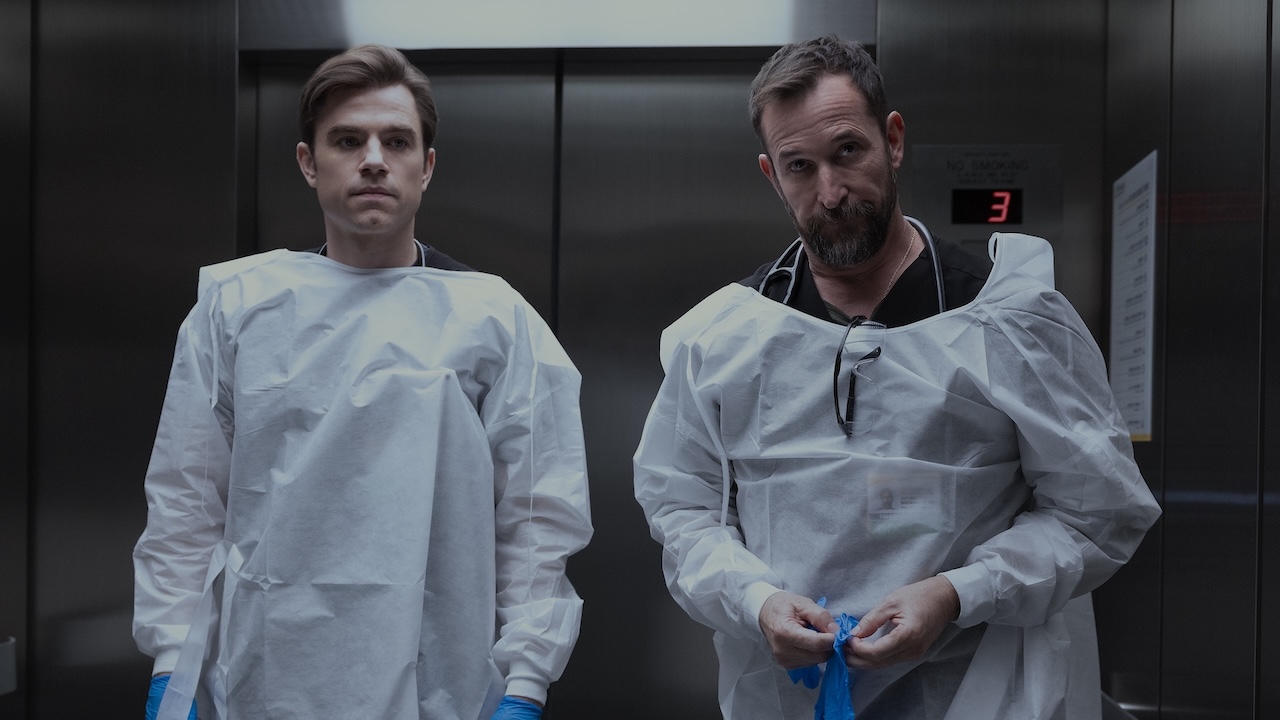Nope: How Steven Yeun's Traumatic Backstory Fits In Jordan Peele's Narrative
Gordy's story means quite a bit to the overall tale of Nope.
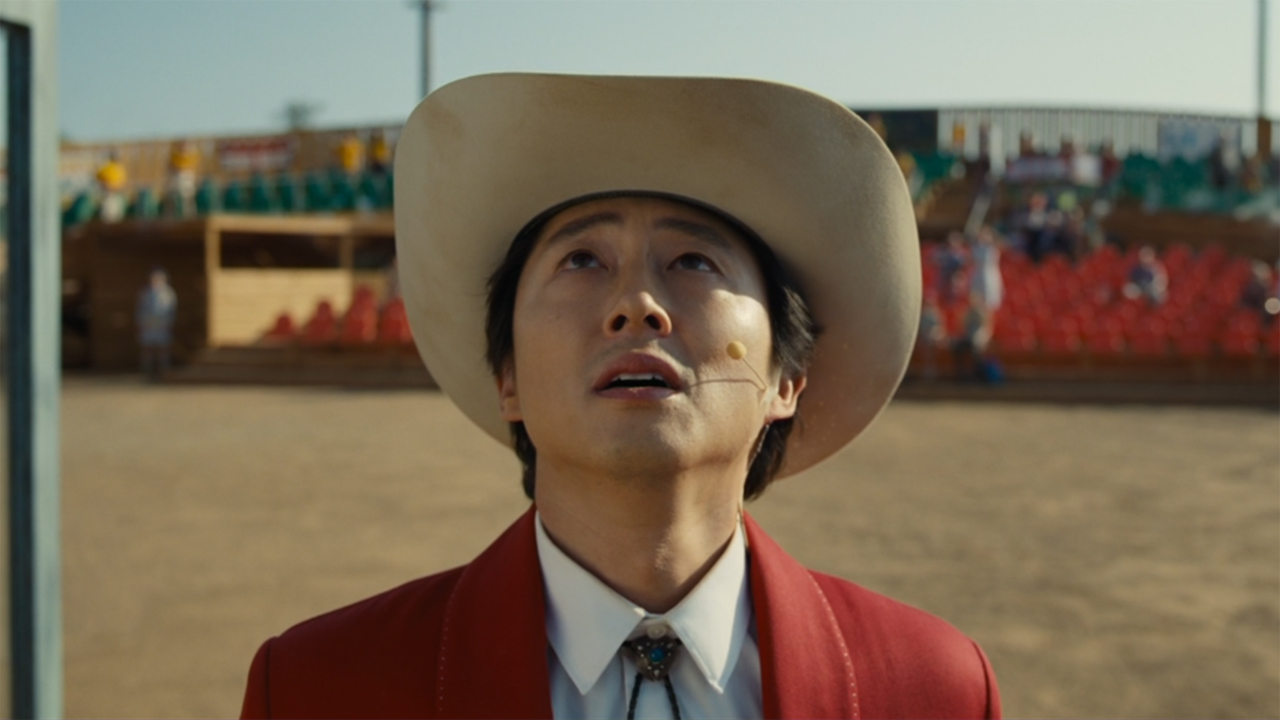
Your Daily Blend of Entertainment News
You are now subscribed
Your newsletter sign-up was successful
Warning: SPOILERS for Nope are in play. If you haven’t seen the movie yet, consider yourself warned, as we’re about to dive into the belly of the beast.
Almost immediately after writer/director Jordan Peele’s 2022 movie release Nope came out, a new talking point started to take shape. Thanks to Peele's previous films Get Out and Us acting as intricate puzzle boxes, there’s a section that audience members have been questioning the relevance of in this third film. It all has to do with the traumatic backstory of Steven Yeun’s character, and whether or not it fits into Peele’s overall narrative.
Naturally if you haven’t seen Nope yet, this is your final warning before spoilers start flying. I’ll be going all over the map in discussing what I think the Gordy story has to do with the rest of the movie, and as such, I’ll need to talk about other events. If you want to know more about the movie without spoilers, you can read our official review for Nope.
If you’re ready to dig into just what everyone’s been talking about, then you're in the right place. Let’s tackle how Gordy and an ill-fated day on his sitcom set planted the seeds for what Nope’s ending, beginning and everything in between was trying to say.
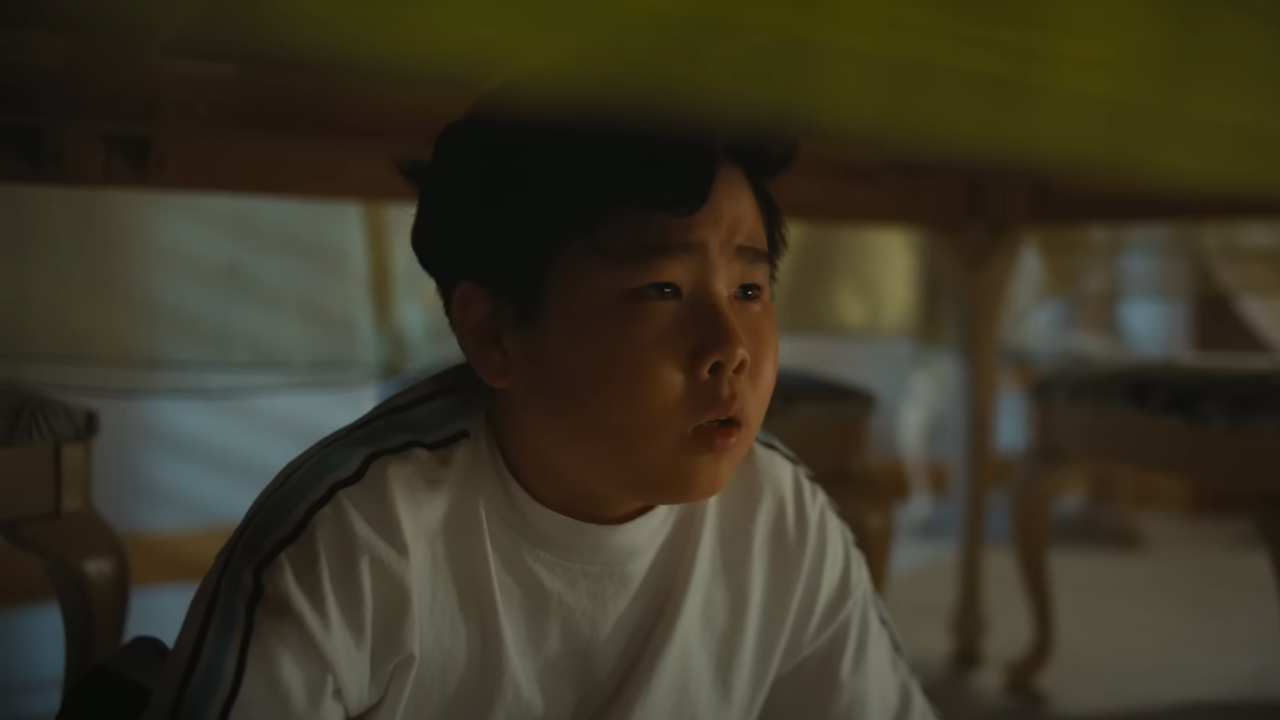
Steven Yeun’s Traumatic Backstory, AKA The Gordy Story
Let’s start with a quick recap of what exactly happened in Nope’s traumatic flashback sequence. It all connects to Ricky “Jupe” Park (Steven Yeun), the owner of the Old West theme park Jupiter’s Claim. A former child star, Park’s career wasn’t always about reality shows and family fun attractions. In fact, one specific day scarred him for life, in an event that I’ll call “The Gordy Story.”
Young Ricky (Jacob Kim) was the star of the hit ‘80s sitcom Gordy’s Home, a series that we become acquainted with through some short snippets that open and dominate a whole segment of Nope’s story. One day in particular would change Ricky Park forever, as the animal actor playing the titular role of Gordy went on a murderous rampage. Killing most of the cast, but only scarring one of his co-stars, Ricky witnessed a horrific event that ended in the chimpanzee being killed right in front of his eyes.
Admittedly, even reading back a recounting of those events after seeing Nope may still have some heads scratching. That much became true in the social media responses, which spawned more fan theories that Jordan Peele is probably having fun reading. It’s in those messages that the story of Gordy has started to really find its footing.
Your Daily Blend of Entertainment News
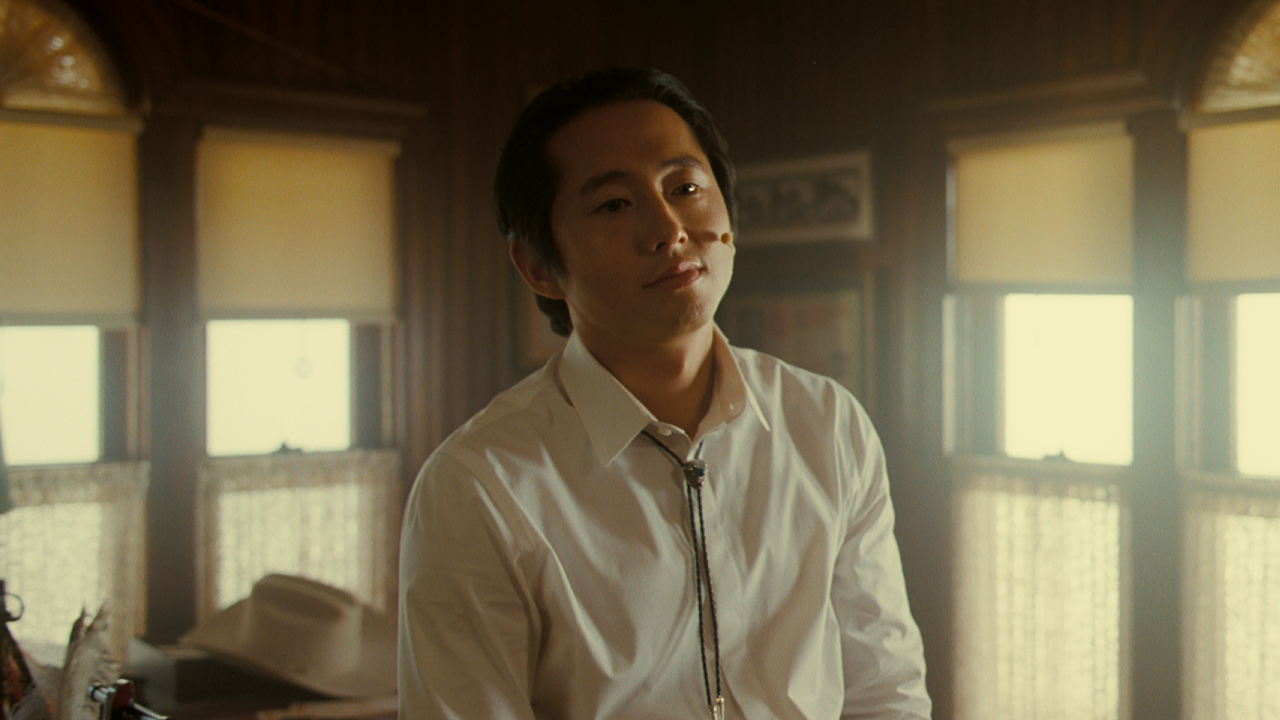
What Fans Have Said About Nope’s Supposedly Random Flashback
Fans of Nope have connected with the Gordy flashback in various ways. Just as Jordan Peele is open to interpretations of his films, there's a huge raft of reactions to these moments that feel unconnected. Twitter user “COACHBOMBAY3000” was one such moviegoer who wasn't sure how to connect Nope's sitcom from Hell to the creature flying in the sky, as seen in their reaction:
Ok nope was amazing … @JordanPeele we need to know more about Gordy the monkey tho bro… what’s the correlation btwn him and the ufo
Meanwhile, some viewers like “Kyiaaaaa” didn't think that the Gordy story fit with Nope's gigantic UFO plot all that much. Save for one thread between the two stories, here's how they took the flashbacks in the context of the overall film:
So I went to see #Nope last night. I need everyone to stop connecting the Gordy/shoe incident to the UFO incident. They aren't connected. The Gordy incident just foreshadowed the final scene events. The common denominator was an animal that could not be tamed.
Not everyone is willing to let Gordy go as simply. Rebutting the disconnect between Nope's plots at work, “JenKatWrites” tweeted this reaction:
losing my mind at the number of NOPE reviews that seem completely convinced, just insistent, that the Gordy's Home flashbacks and the stuff with Steven Yeun's character are pointless or unrelated to the main story, like holy shit
Connecting the dots with a previously mentioned reaction, “dojabins” brings it all home with this moment of talking things out:
I get the Gordy parts NOW. While in the theater it felt out of place bc like what does this have to do with anything but it’s why he felt he could “tame” and “handle” and “control”. That moment was what gave him the false confidence. I get it now. #NopeMovie
Running the table of readings, Nope already has the makings of a hotly debated film; and it's only been in the box office for almost two weeks after its the latest Jordan Peele movie's hit opening weekend. To truly see how the harrowing moments in Steven Yeun’s Nope backstory connect, you need to take into account the actual story that the film is trying to tell.
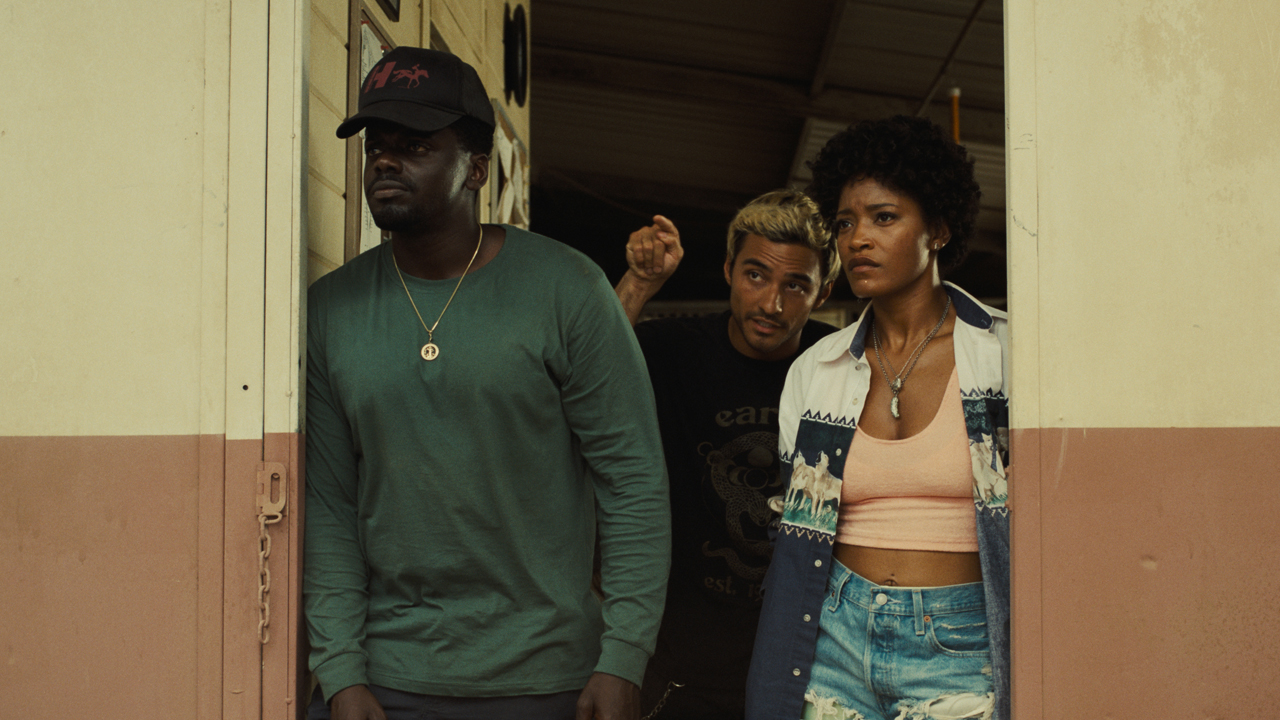
The True Narrative Of Nope’s Story
I’ll admit, when I first saw Nope, I was among the many who wondered why the Gordy sequences were even included. I was trying to puzzle together just what Jordan Peele was doing here, again being influenced by how Get Out and Us had pretty intricately woven stories.
Admittedly, Nope is a pretty basic storyline, as it’s rather A to B with what it’s trying to do. However, I believe that’s because Peele is engaging his subject matter in a very accessible way that invites the audience to participate in their own way. Nope is, above all else, about the subject of “spectacle.”
Jordan Peele admitted this much in his interview with Empire, where he laid down the following crucial statement:
I started off wanting to make a film that would put an audience in the immersive experience of being in the presence of a UFO. I wanted to make a spectacle, something that would promote my favourite art form and my favourite way of watching that art form: the theatrical experience. As I started writing the script, I started to dig into the nature of spectacle, our addiction to spectacle, and the insidious nature of attention. So that’s what it’s about. And it’s about a brother and sister and healing their relationship.
Going into Nope, the word “spectacle” stuck firmly in my mind, and as such it was the cipher I used to solve just what the overall narrative was saying. Jordan Peele has examined pop culture’s “addiction to spectacle,” mostly through the main plot of OJ (Daniel Kaluuya) and Emerald Haywood (Keke Palmer) trying to nab proof of Nope’s central creature.
However, there’s a much darker side of that same coin that’s explored through the story of Ricky Park and his own particular obsession with spectacle.
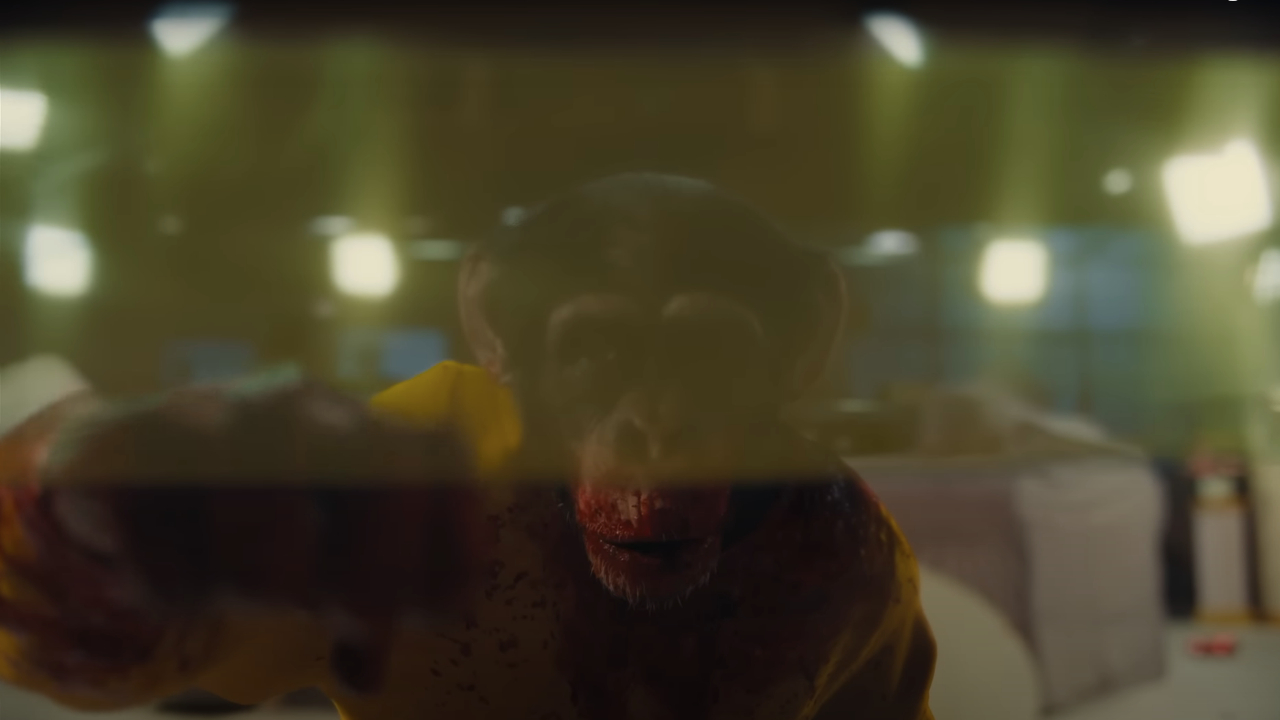
How The Gordy Story Fits Nope’s Narrative
Trauma and spectacle are two circles that overlap throughout Nope. We see it in the mainline story, as OJ and Emerald are grieving the death of their father (Keith David), and the one thing that brings them together is trying to capture the alien creature that plagues their farm on film. That’s the positive side to Nope’s story, which gives way to the more negative side, as told through Ricky Park’s actions.
“The Gordy Story” is a traumatic experience that turned into a spectacle, as we learned through Older Ricky’s spiel about people becoming obsessed with the Gordy’s Home tragedy. However, the child star never fully processed the events of that day, as we see in his flashbacks and even his shrine to that former sitcom.
Trauma and spectacle have fused together in Ricky Park’s psyche, which is why he’s not above doing everything from star in a reality show with his family to sacrificing horses to an alien presence to make a buck. Not to mention that his survival in the aftermath of the Gordy debacle must have convinced him that he somehow had a gift with animals, a trait that we actually see displayed by OJ Haywood throughout Nope.
A strong sense of overconfidence and showmanship have overridden Ricky Park and his potential for reason. That leads him to buy horses from the Haywood family, in order to feed them to the alien presence later nicknamed "Jean Jacket," and keep the paying crowds going. However, his final time running the show at Jupiter's Claim proved to be fatal, as it saw Ricky and his crowd eaten by the spectacle they came to see.
Nope’s overall narrative is about the subjective lenses every one uses in their personal life to observe and pursue spectacle. In telling those stories described above, Jordan Peele forces us all to ask ourselves where the line is between pop culture spectacle and truly disturbing tragedy.
That border isn’t concretely defined, as moviegoers are invited to answer those questions ourselves. More importantly, we're asked to define how far we'll push the boundaries between danger and safety in the name of such spectacle; with Ricky's cautionary tale serving as a morality play that exhibits the consequences of going too far.
Ricky Park’s tragic backstory is another side of the coin we’ve been presented throughout Nope; and thus the Gordy flashbacks totally fit into the film, as they serve as yet another moral signpost we’re supposed to freely interpret. With such free interpretation comes even more questions; and the marketing campaign for Nope has a question of its own to pose to audience members new and old.
If you want to gather your thoughts again, or just have a hankering to enjoy the IMAX-filmed spectacle that is this film, Nope is currently showing only in theaters. Just make sure that you’ve seen everything you need to see before drawing your final conclusions. You might also want to listen to ReelBlend's Jordan Peele interview, as some of the insights within might help bring everything into focus.
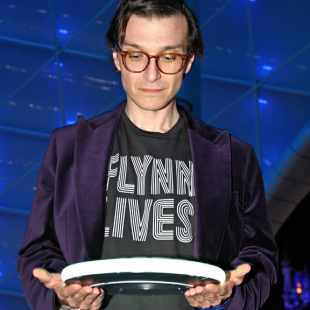
Mike Reyes is the Senior Movie Contributor at CinemaBlend, though that title’s more of a guideline really. Passionate about entertainment since grade school, the movies have always held a special place in his life, which explains his current occupation. Mike graduated from Drew University with a Bachelor’s Degree in Political Science, but swore off of running for public office a long time ago. Mike's expertise ranges from James Bond to everything Alita, making for a brilliantly eclectic resume. He fights for the user.
